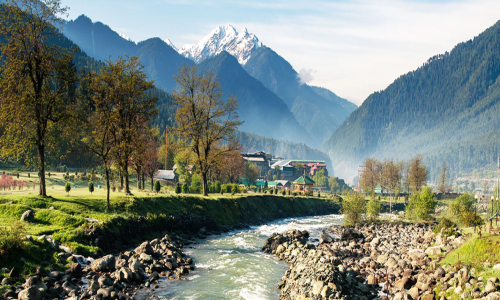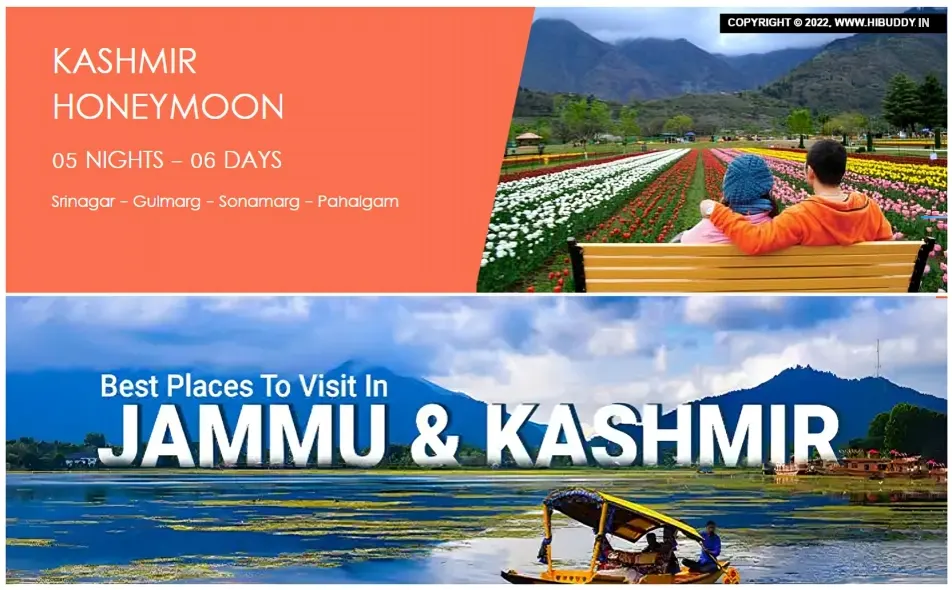SRINAGAR TOURISM INDIA

When you visit Srinagar, the capital of Kashmir during the summer, you will undoubtedly fall in love with its alluring scenery. Srinagar, which translates to “the city of wealth and abundance” in Sanskrit, has the ideal setting under the shadow of the beautiful Himalayas, which are covered in snow. People travel from all over the world to Srinagar because of its many attractions, which include its world-famous Dal Lake, stunning scenery, crystal-clear waters, and a shepherd’s community. This location provides an amazing getaway from the cacophony and smog of cities.
Principal Attractions
See the well-known lakes in Srinagar while you’re here. One of the most stunning and frequently visited lakes in the world is the well-known Dal Lake. You can’t say enough good things about the lake surrounded by mountains, blooming orchards, and gardens. Take a relaxing ride on a houseboat or a shikara. Another well-known body of water, Nagin Lake, is a subsidiary of the Dal and is primarily used for boating, diving, and swimming.
You may find the Shankaracharya Temple once you cross the Takht-e-Suleiman hill. This temple to Lord Shiva is thought to be the valley of Kashmir’s oldest shrine.
For fans of the great outdoors, the Mughal Gardens are a veritable wonderland. Chashmashahi Garden, Nishat Garden, and Shalimar Garden—all created by the Mughals—bloom with some of the world’s rarest flowers.
Activities include fishing, golfing, mountaineering, skiing, trekking, river rafting, paragliding, aero sports, backpacking, canoe trips, camping, and kayaking may be found in the surrounding hilly regions.
Cuisine/Food
The flavorful and aromatic cuisine of Kashmir is known for its use of spices like saffron, cloves, cardamom, and cinnamon. The aboriginal population has a strong preference for a variety of rice meals and non-vegetarian foods, such as chicken, fish, and mutton. The majority of the meals at the renowned Wazwan, an official feast, are not vegetarian. Famous non-vegetarian recipes include Yakhni, Gushtaba, Tabak Maz, Seekh Kababs, and Rista.
Purchasing
There’s more to Srinagar than just its breathtaking natural beauty. It has a wide range of handicrafts to its name. Unique items including carpets, papier-mache, silk and tweeds, woodwork, phoran, metalware, wall hangings with naqqashi embroidery, chain stitch embroidery, cricket bats, and much more are available for purchase. Each of these handcrafted goods is distinct and contributes to the Kashmir valley’s uniqueness.
Plants and Animals
Forests with a range of tree species encompass a very small area and serve as a home to creatures including musk deer, hangul, rhesus monkey, serow, langur, leopard, and leopard cat. In addition, a number of bird species can be observed in the vicinity of Dal Lake and adjacent hills and bodies of water, including the Rufous-backed Shrike, Indian Mynah, Griffon Vulture, Bearded Vulture, Red Billed Chough, and Himalayan Whistling Thrush. Several flower species are also found in the forest region, such as juglans regia, aesculus indica, pinus griffithii, abies pindrow, and morus alba.
Temperature
You are in the coldest part of India when you are 1,730 meters above sea level. Summertime brings lovely days that are appropriate for wearing light woolens or heavy cotton clothing. However, the region receives a heavy covering of snow throughout the winter, and the temperature drops to zero. Dal Lake freezes as well. Traveling is more enjoyable in the spring.
Accommodation
Being a popular tourist destination in India, Srinagar has both high-end and low-cost hotels. Additionally, there are other hotels that are managed by the government and have all the necessities. For a unique experience, consider renting a houseboat at Dal Lake for a brief vacation.
How to get there:
Via Air: Srinagar is connected to other regions of India by a domestic airport.
By Rail: The closest railhead is Jammu.
By Road: Taxis, Super Deluxe buses operated by private companies, J&K State Road Transport Corporation (SRTC).

